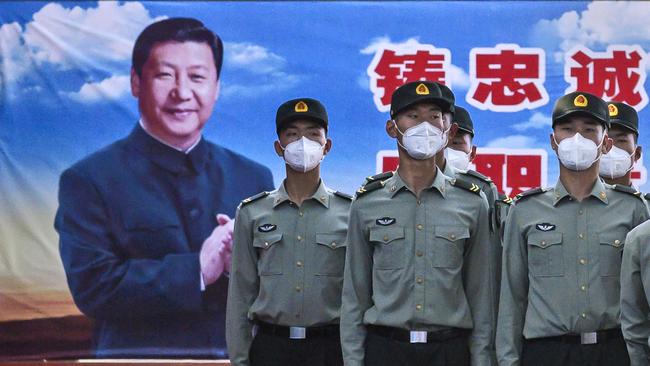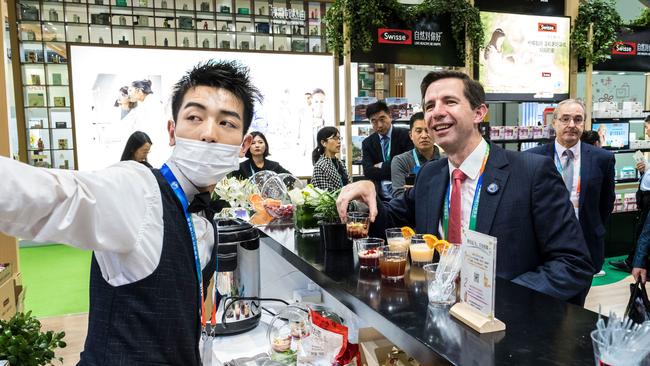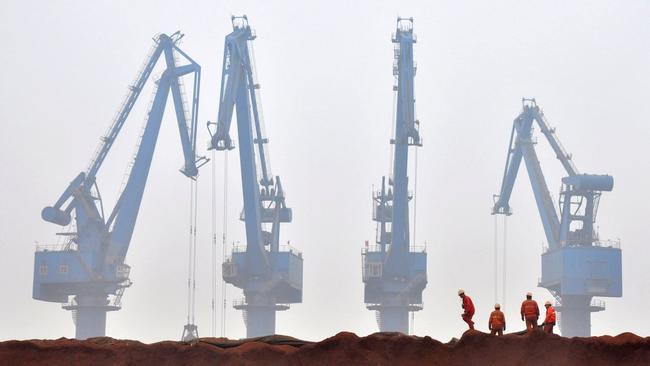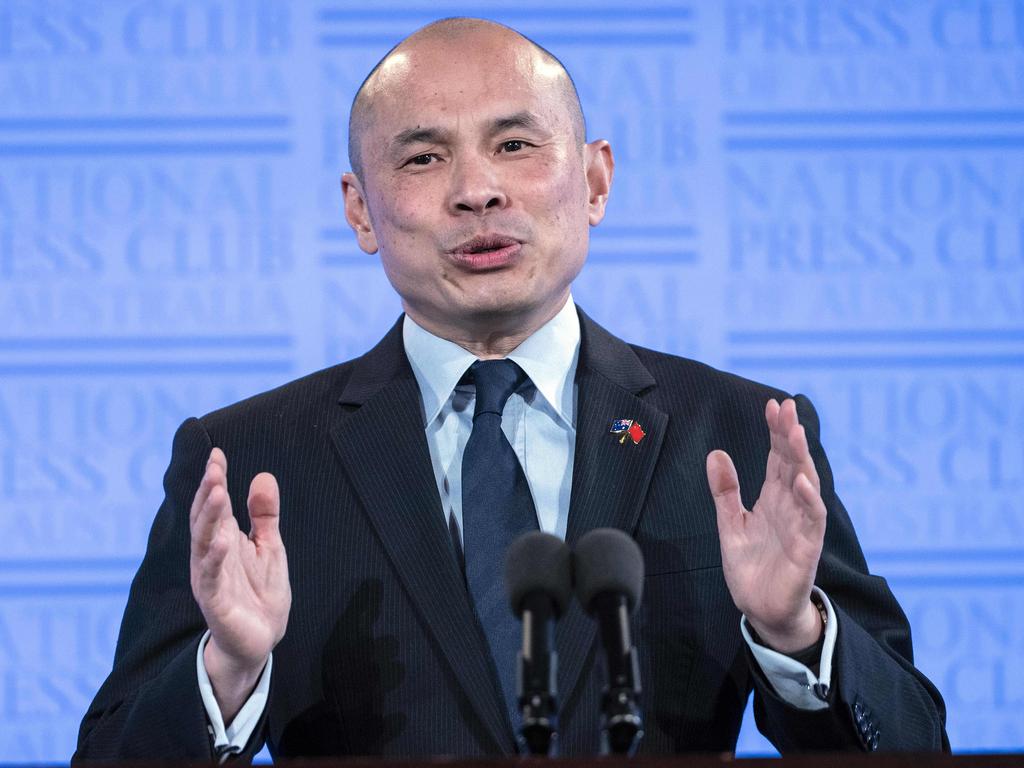Growing fears over Australia-China trade as diplomatic ties sour
With staying in China rapidly becoming risky for Australians, fears are growing that souring diplomatic relations are spreading into trade ties.

The hasty departure from China by the last two correspondents for Australian newspapers raises major questions about the long term health of Australia’s $200bn trade with China.
With official warnings from the Department of Foreign Affairs and Trade that Australians in China faced arbitrary arrest, which came some weeks ago, Australian business people will now be wary of making future business trips to China even when COVID travel restrictions are eased.
Regular business meetings including attendance at the annual Boao Forum on Hainan Island, which is partly sponsored by Fortescue Metals, and the annual China Import Expo in Shanghai, due to be held later this year as well as the annual AFL matches in Shanghai are now under a cloud in the long term, with businesses large and small having to think carefully about sending any employees to China in future.
When DFAT issued its warnings, there were some in Australia-China circles who felt the warnings were an unnecessary provocation at a difficult time in the relationship.
But now with the recent arrest of Chinese Australian journalist Cheng Lei and the hurried departure of two of Australia’s senior journalists in China, the ABC’s Bill Birtles and The Australian Financial Review’s Mike Smith this week, there is little doubt that Australian travelling to China could have a target on their back.
Trade spillover
The move against the journalists has finally underlined what many have feared for some time: that the increasing tensions in the relationship will spill over into broader issues of trade.
ABS figures show that Australian exports of goods to China for the financial year ended June 2020 rose to a record $150 billion, compared to $135 billion in the year to June 2019, as a result of strong iron ore prices and record sales of beef and wine.
Iron ore is the biggest single source of Australian exports to China making up 56 per cent of all goods exports in the 2019-20 financial year.

Australian sales of beef to China have been strong in the first half of the year but were hit in July with an increase in tariffs from less than five per cent to 12 per cent as total beef sales hit tariff trigger levels set under the China Australian Free Trade Agreement.
Some 25 per cent of Australia’s $1 billion plus meat exports to China have also been hit by temporary bans on meat from five abattoirs in Australia in recent months with meat sales down by 35 per cent on a year on year basis in the period from May to July.
“These issues couldn’t have come at a worse time for the industry,” Patrick Hutchison the chief executive of the Australian Meat Industry Council told the Australian on Tuesday.
“We have been working in Victoria on the road out for production, especially in sheep meat with the state being responsible for 50 per cent of production.”
“Farmers and industry need the certainty of supply chains more than ever.”
The Council has been working with the Federal Department of Agriculture to have discussions with Chinese customs officials over their issues with meat from the five abattoirs.
China hit Australia’s barley imports with a tariff of up to 80 per cent earlier this year, and recently announced anti-dumping and anti-subsidy investigations into imports of Australian wine.
While the inquiry into Australian wine could take as long as 18 months, there have been fears that news of the investigating could hit exports earlier as Chinese buyers may choose to cut back their purchases of Australian wine due to fears of price increases in the longer term.
Slowing trade
Figures release by China’s Customs department this week have underlined a situation of slowing trade between the two countries.
They show Australia’s good exports to China fell by more than 26 per cent in August, taking total exports down by 7.5 per cent over the year to $US75.7 billion, according to new figures from the
The latest monthly figures from China, which can vary from the figures produced by the Australia Bureau of Statistics, as reported by Bloomberg from the latest Chinese customs figures out on Monday, show that imports from Australia were down by more than any other country in August.
The figures show that Chinese imports from Australia in August were down by 26.2 per cent to $US8.81 billion on a year on year basis in a month where total imports by China were down by only 0.5 per cent.
The figures from Beijing come after data from the ABS showed that Australian good exports to China in July were down by 16 per cent in July on a year on year basis with a fall off in exports of iron ore and coal.

This was a turnaround from four months of strong export sales to China from March to June.
While analysts are wary of making too much out of one month’s trade figures, the numbers have been watched closely for any sign that worsening political tensions between Australia and China will be reflected in exports to Australia’s largest trading partner.
Australian Bureau of Statistics figures have shown that Australian exports to China were holding up strongly from March to June after a slow start to the year due to the impact of Cyclone Damien in Western Australia on iron ore supplies.
Falls in July and August in figures from Australian and China sources now show a short term downturn in trade.
The figures do not include Australian trade in services to China which has been hit hard as travel restrictions have prevent the arrival of tourists and students from China.
But the figures from Beijing, which do not break down the statistics by industry, show a weakening picture for goods imported from Australia for most of 2020, have with imports down on a year on year basis every month except March.
New low in relationship
Australia’s relations with China have continued to hit new lows this year with China’s anger at Australia’s calls for an inquiry into the origins of the coronavirus, federal government rejection of a takeover bid for the dairy and drinks business of Japanese owned Lion by a Chinese company and the moves by the Federal Government to block deals between Australian states and foreign governments including Victoria’s support for China’s Belt and Road Initiative.
Last week’s news of Cheng Lei’s arrest has also sent shockwaves through the Australian expat community in China.








To join the conversation, please log in. Don't have an account? Register
Join the conversation, you are commenting as Logout